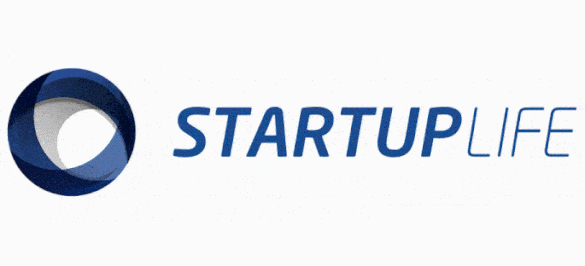By Victoria Goldenfum and Layon Lopes*
Software protection in Brazil can be performed through different legal instruments. Among the main software protection strategies available, the most common ones in the Brazilian market are: (i) protection through contractual provisions such as confidentiality and non-compete clauses; as well as protection through (ii) registration of the computer program in the National Institute of Industrial Property (INPI).
The software protection must be observed by all national or foreign entrepreneurs, who intend to start a business in Brazil, by licensing the software technology in this market, in order to properly protect the property of a computer program.
A software, or a computer program, are considered as intangible goods by the Brazilian law, because of their immaterial character, as it does not have a physical form. Furthermore, computer programs are considered goods of great added value, mainly because of the productive capacity that their technological solutions offer to the world. So, it is not a surprise that currently, it is possible to hire software services, from companies located in different places around the world, for relatively affordable prices.
And the Brazilian market is clearly an attractive market for entrepreneurs who are interested in licensing its software or any technological solution today.
Therefore, every company that owns software economic exploitation rights, must understand which are the legal instruments for software protection in Brazil, in order to establish the best protection strategy of this intangible asset and avoid, for example, improper reproduction and other acts of unfair competition.
In Brazil, a software is protected by the Brazilian Copyright Law, No. 9.610/98. That is to say that a software is considered to be an intellectual work, as it is developed through the “creative spirit” of its Author. The Copyright Law further establishes in its Article 7, § 1, that computer programs will be subject as well to a specific legislation, which will deal with the protection of computer programs such as regulations for their commercialization, among other activities. Known informally as “Software Law”, the Law No. 9.609/98, is the second legal instrument that protects software in Brazil.
In a nutshell, we can affirm that a computer program is a set of codifications in a particular language, developed in order to obtain a result through an intellectual creation made by an author or co-authors. As the software is qualified as an authorial work in Brazil, and protected by Copyrights, the law established several guarantees to these goods, promoting a healthy commercial environment, where third parties who eventually copy, alter, redistribute, or sell a software, without authorization from the Rights Holder, will be punished for the illegal action or even crime. The Brazilian legislation provides a well-established software protection system, with broad jurisprudence already entrenched and a strong copyright apparatus, promoting well-regulated software protection in Brazil.
In addition to the protection granted by Copyright, software in Brazil is also considered an Intellectual Property, thus, protected once again by another specific legislation, in this case by the Industrial Property Law, No. 9.279/96. For this reason, today in Brazil, it is possible to register a software in the National Institute of Industrial Property (INPI), which offers the holder of a software registry application, benefits such as: (i) homologation of software ownership by this federal agency, ensuring legal certainty about the ownership of this asset; (ii) automatic protection not only in Brazil, but for 176 countries that are signatories to the Berne Convention; (iii) protection for over 50 years; (iv) among other benefits.
We must clearly express that, since the software is considered an authorial work, and protected by the Copyright legislation, the registry of these goods in INPI is an optional procedure. It is not necessary to have the INPI software registry to prove a computer program ownership in Brazil, or even to explore it in the national market. The software, as an authorial work, guarantees the author’s rights from the moment of its creation, and the registration instrument is only a way to homologate or formalize it by a federal institution.
After this brief explanation, let’s move on to the mechanisms of software protection in Brazil:
- Software protection through contractual clauses.
This is the most used protection strategy by entrepreneurs operating in the Brazilian market, e.g. local entrepreneurs, who developed their software originally in the national territory, as well as entrepreneurs who had developed the software abroad and decided to license it in the Brazilian market.
This protection strategy is based on establishing, in a clear, expressed and with considerable high penalties, any type of economic exploitation copyrights and industrial property rights violation inherent to a computer program, whenever it is necessary to share the code details with third parties. These third parties may be employees, service providers, suppliers or even investors who will have to have access to the documented software back-end for any reason.
Therefore, before sharing the back-end codes, the entrepreneur must sign a contract, together with any of these third parties, where the following clauses will be established: (i) Confidentiality clause, prohibiting any type of unauthorized information sharing with third parties, under the penalty of fines that can reach millions of reais, and; (ii) Non-compete clause, expressing that the trusting party will not, after having access to the software codes, develop similar or competing computer programs, in its own favor or in favor of a third party, under the penalty of also paying very high fines, as well as an indemnity for loss and damage to the owner of the computer program in case of the clause violation.
By structuring these contracts and capturing the appropriate signatures of those responsible for the information confidentiality, it is possible to set up a safe procedure, considering the legal software protection instruments in Brazil. Besides this, these confidentiality and non-compete clauses can even be used within other contractual instruments to complement the protection of an inter-party relationship, as in a Software Licensing Agreement, in which the licensor (owner of the intellectual property), will license the software use to an interested customer, the licensee.
- Software protection through Computer Program Registration in INPI.
The other strategy used by entrepreneurs to promote software protection in Brazil is to apply for the software registration in INPI. This registration requires that the owner of a software deposit the source code of the computer program in INPI, in order to request the registration of this computer program. As previously mentioned, the computer program registration in INPI offers different advantages for the applier, such as: (i) homologation of software ownership by this federal agency, ensuring legal certainty about the ownership of this asset; (ii) automatic protection not only in Brazil, but for 176 countries that are signatories to the Berne Convention; (iii) protection for over 50 years; (iv) registration in 7 days from its request.
Once the source code has been registered, it is not possible to modify it. In other words, if in the next few days, the source code is updated (which occurs many times in the routine of a technological company that licenses software), the registration once made is now outdated and does not protect this new source-code. Therefore, the software registration process in INPI is an insufficient measure for software protection in Brazil.
Considering this reality, many companies carry out several software registrations in INPI during the year in order to always seek an update of this registration certificate. This requires a regular INPI fee payment, which can be burdensome on some companies. Thus, as the software is updated, the company applies for a new request of registration.
As the software ownership protection is independent of registration, many entrepreneurs do not use this instrument to protect their computer programs. In contrast to this, there are entrepreneurs that choose to use both strategies, promoting a monthly, trimestral, or semestral software registration, besides the software protection through contractual clauses.
If you have any further doubts regarding software protection in Brazil, please get in touch with our legal advice team. We will be happy to help.
* Layon Lopes is the CEO of Silva | Lopes and Victoria Goldenfum is a member of the Silva | Lopes team.







